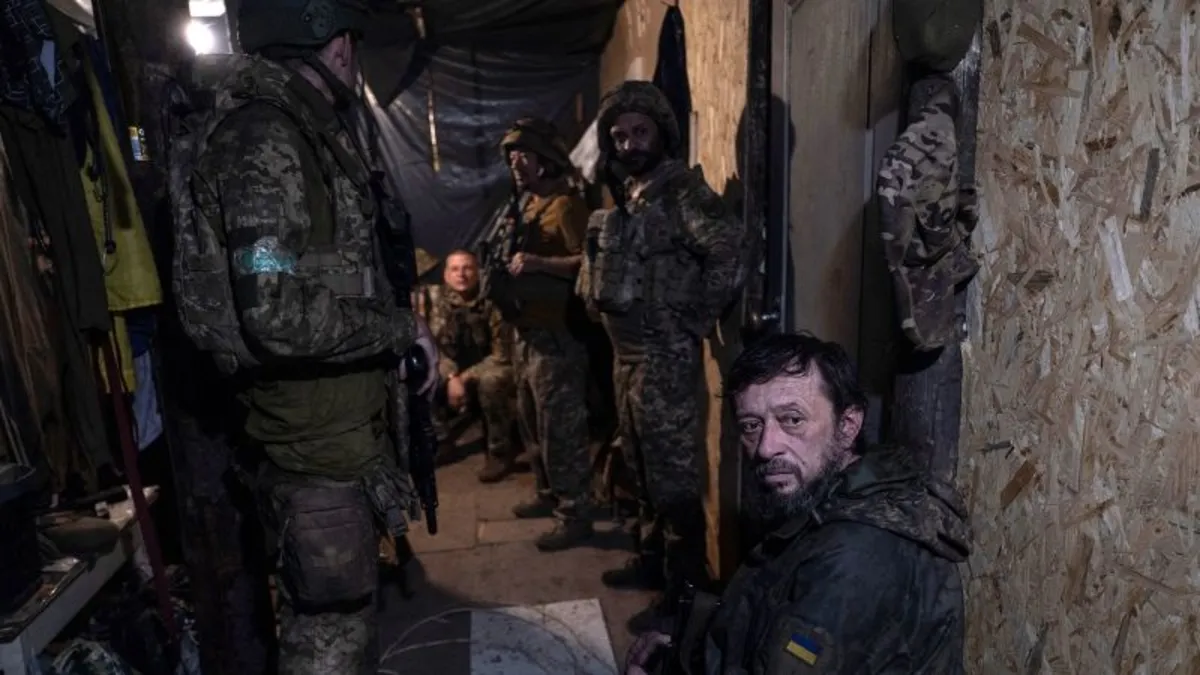
Once again, European capitals are filled with apprehension regarding the potential strategies of Russian President Vladimir Putin. The concern stems from the fear that he could effectively divide the transatlantic alliance while achieving his objectives in Ukraine. As a surprise summit between Putin and US President Donald Trump was announced for Friday in Alaska, a European diplomat, who requested to remain anonymous due to the sensitive nature of the discussions, expressed to CNN: “We are at risk of being a footnote in history.”
The anxiety among European leaders is compounded by the uncertainty surrounding the Kremlin’s proposals aimed at halting the conflict in Ukraine. Putin has not shared any specific details, leaving many to speculate about his intentions. Following a meeting with Putin last Wednesday, US envoy Steve Witkoff remained tight-lipped about the discussions. President Trump commented, “It’s very complicated. We’re going to get some back, we’re going to get some switched. There will be some swapping of territories, to the betterment of both.” However, European leaders are skeptical that this “betterment” is a realistic outcome.
Currently, there is no indication that Putin has softened his uncompromising stance on his demands, either in terms of territorial gains or the ongoing subjugation of Ukraine, which he views without any security guarantees and with limitations on its military capabilities. A diplomat highlighted the lack of urgency in Paris, Berlin, or London, noting, “There is no sense that seizing someone else’s territory matters to this US administration, and the Europeans find that deeply disturbing.”
In response to the escalating situation, the UK, France, Germany, Italy, and the EU issued a joint statement declaring their commitment to the principle that international borders must not be changed by force. Poland and Finland also endorsed this statement, emphasizing the importance of unity in the face of Russian aggression. During discussions with US Vice President JD Vance, who was preparing for a vacation in the UK, European leaders sought clarity on the proposed negotiations.
According to the Institute for the Study of War (ISW), the Trump Administration has characterized Putin's demands for a ceasefire in Ukraine in various ways since August 6. A common thread across these accounts is the expectation that Putin will insist on the withdrawal of Ukrainian forces from all areas of the Donetsk region still held by Ukraine, which includes significant cities like Slovyansk, Kramatorsk, and Kostyantynivka.
Conceding to such demands would compel Ukraine to abandon its "fortress belt," a fortified defensive line established in Donetsk Oblast since 2014, leaving it vulnerable to further Russian aggression. Military analyst Mick Ryan noted that “Ukraine, more than anyone, understands that ceded territory would then be used as the launch pad for future Russian aggression.”
The situation draws stark parallels to the Munich Agreement of 1938 between British Prime Minister Neville Chamberlain and Adolf Hitler. Even after the Nazis invaded Czechoslovakia, Chamberlain was reassured by Hitler that it was his last territorial claim in Europe. There remain uncertainties about whether Putin will persist in demanding control over additional Ukrainian regions, such as Kherson and Zaporizhzhia, or if he would accept a freeze along the current frontlines.
Questions also linger over whether Putin will demand that Ukraine acknowledge Moscow's sovereignty over Crimea and what concessions he might offer in return. Ukrainian President Volodymyr Zelensky has reiterated that the Ukrainian constitution prohibits the surrender of any territory, complicating negotiations further.
European leaders have emphasized that a ceasefire must be a prerequisite for any discussions about territorial adjustments. They stated that the current line of contact should serve as the starting point for negotiations. Additionally, there is ambiguity surrounding whether the Kremlin would agree to a European reassurance force to ensure the ceasefire, with indications suggesting that NATO members would not be allowed to participate.
Despite the challenges, European leaders expressed in their statement that there must be “robust and credible security guarantees that enable Ukraine to effectively defend its sovereignty and territorial integrity.” Yet, the experience of the past few years suggests that their efforts to influence the situation may fall short.
As noted by Rym Momtaz from the Carnegie Endowment for International Peace, European nations have been on a tumultuous ride since Trump's inauguration, often left feeling helpless. They have yet to establish a strategic identity that operates independently from US interests, a point French President Emmanuel Macron has been advocating for the past eight years.
Despite their desire to support Ukraine, European leaders find themselves in a position of pleading and speculating about decisions that may be made without their involvement. EU foreign policy chief Kaja Kallas highlighted that “any deal between the US and Russia must include Ukraine and the EU, for it is a matter of Ukraine’s and the whole of Europe’s security.”
In conclusion, the precarious situation in Ukraine reveals the complexities of international diplomacy, especially as Europe grapples with the ramifications of its dependence on the US. As Mick Ryan observes, the lack of a coherent US strategy on Ukraine only heightens Europe’s challenges, leading to an environment fraught with uncertainty and potential peril.